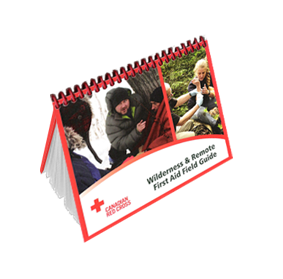

We train you like the life you save will be ours!
Or just click on Info Package to download a more in-depth description.
Did you know...
‣ That brain damage can occur in as little as 4 minutes after a persons last breath?
‣ That there can often be a full recovery from a clot based stroke if care is given quickly enough?
‣ If you lose 50% of your total blood volume it is unlikely you will survive unless you are already receiving advanced medical care?
A Standard First Aid course will teach you!

Do you remember...
‣ What you need to do before the AED pads go on?
‣ The extra step you should do for a pregnant woman during CPR?
‣ The other drugs that can't be taken with Nitroglycerine?
A Standard First Aid recertification course will test you!

How can you...
‣ Open the airway of someone with a potential spinal injury?
‣ Help an infant who is choking?
‣ Use an AED on a child or infant with only Adult pads?
A CPR-C recertification course will remind you!

If you are considering a career involving First Aid and...
‣ Work or want to work as part of a First Response team at a company or jobsite.
‣ Have an interest in working as a paramedic, firefighter or police officer.
‣ Want to take your First Aid training to the 'next level'.
A First Responder course will help you!

If you are considering a career where you will regularly provide high level First Aid services or you...
‣ Want a certificate that meets the Paramedic Association of Canada National Occupational Competency Profile for the practitioner level of Emergency Medical Responder (EMR).
‣ Have an interest in working as a paramedic, firefighter or police officer.
‣ Want or need the highest 'urban' First Aid level provided by the Canadian Red Cross.
An Emergency Medical Responder course is a great start!

How do you...
‣ Roll someone with a potential spinal injury?
‣ Properly use a bag-valve mask?
‣ Decide whether a child needs CPR or just assisted breathing?
A CPR-BLS course will show you!

Do you...
‣ Camp, hike or canoe in areas where cell phones don't get a signal?
‣ Travel, work, live or vacation in remote areas where you're more than an hour from medical aid?
‣ Have an interest in First Aid that goes well beyond what's taught for 'Urban' First Aid?
A Wilderness & Remote First Aid course might be what you're looking for!

Other courses offered byLMac Community CPR
Prevention of Disease Transmission
‣ Ensure you or your organization is prepared to deal with biohazards waste & blood borne pathogens
‣ 2-4 hours of instruction
Babysitting
‣ Teaches youth how to handle emergencies with confidence by providing the basic first aid skills for common first aid problems
‣ 8-10 hours of instruction
Childcare First Aid
‣ For individuals who care for infants or children in the workplace or at home
‣ 8 hours of instruction
Marine Basic First Aid
‣ Designed for employees in the marine industry or those pursuing employment in this industry.
‣ The course content is consistent with Standard First Aid in a marine environment and meets Transport Canada Training Program Standards in Marine First Aid (TP 13008E)
‣ 16 hours of instruction
Marine Advanced First Aid
‣ Comprehensive first aid and CPR techniques and scenarios for those who need a higher level of training to work and respond to emergencies in a marine setting. Course meets the requirements of Transport Canada; outlined in Transport Publication (TP) 13008. Designed for any person who wants to obtain a rating certificate, endorsement, or a Master or Officer certification, and for those providing first aid on board a vessel engaged on a near-coastal voyage, class 1, or on board a vessel on unlimited waters.
‣ 44 hours of instruction
How to book a seminar?
Simply email: Laura@LMac-CPR.ca or call to arrange dates and times. It is advisable to have 3 possible dates selected to ensure course availability.
Specific pricing is available on each course page, general cost information can be found on our Costs page
The Basics of CPR
Remember to Ask, Answer & Act and do the best you can.
Ask the question.
Answer yes or no
Actions are the steps below: 1 2 3 A B C
1 - SCENE ~ Is the scene safe? No glass, no gas, no fire, no wire, look up, look down
Yes: Carry on to the next question
No: Make it safe or wait for professional crews to do so
2 - WAKE ~ Can I wake them? Clap, tap, yell and pain stimuli
Yes: Begin a secondary survey, checking for additional injuries
No: Continue
3 - CHECK ~ Airway: Is it open?
Yes: Continue
No: Open it with head tilt/chin lift or jaw thrust
CHECK ~ Breathing: Are they breathing? Inhale/exhale/chest rise
Yes: Maintain airway, begin secondary survey
No: Acknowledge the person needs
911/EMS and continue
CHECK ~ Circulation: Are there signs of heavy bleeding?
Yes: Apply bandages to stop bleeding and continue
No: Continue
CHECK ~ 911/EMS Has someone called 911/EMS?
Yes: Carry on with your rescue.
No: Direct someone to call; if alone, call before you begin CPR
CPR:
C Start Compressions. Adult/Child/Infant is 30 compressions.
A Open airway with head tilt/chin lift or jaw thrust
B Give 2 breaths with just enough air to make the chest rise
Repeat cycles of compressions and breaths until either help arrives or the patient begins breathing.

LMac Community CPR
875 Hamilton Road, London, Ontario
Ph: 519-453-1483 Email:Laura@LMac-CPR.ca
Copyright 2020 - LMac Community CPR